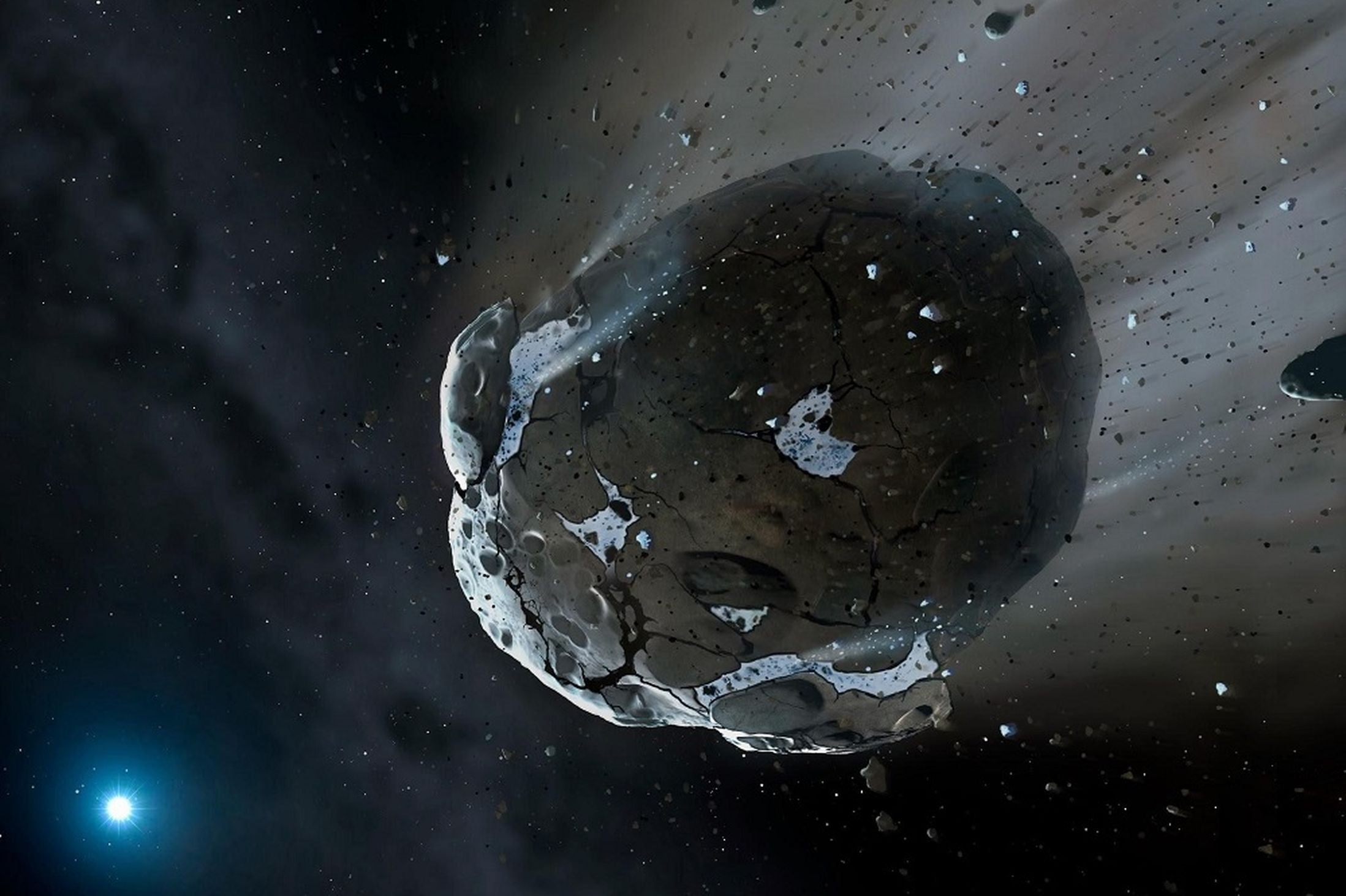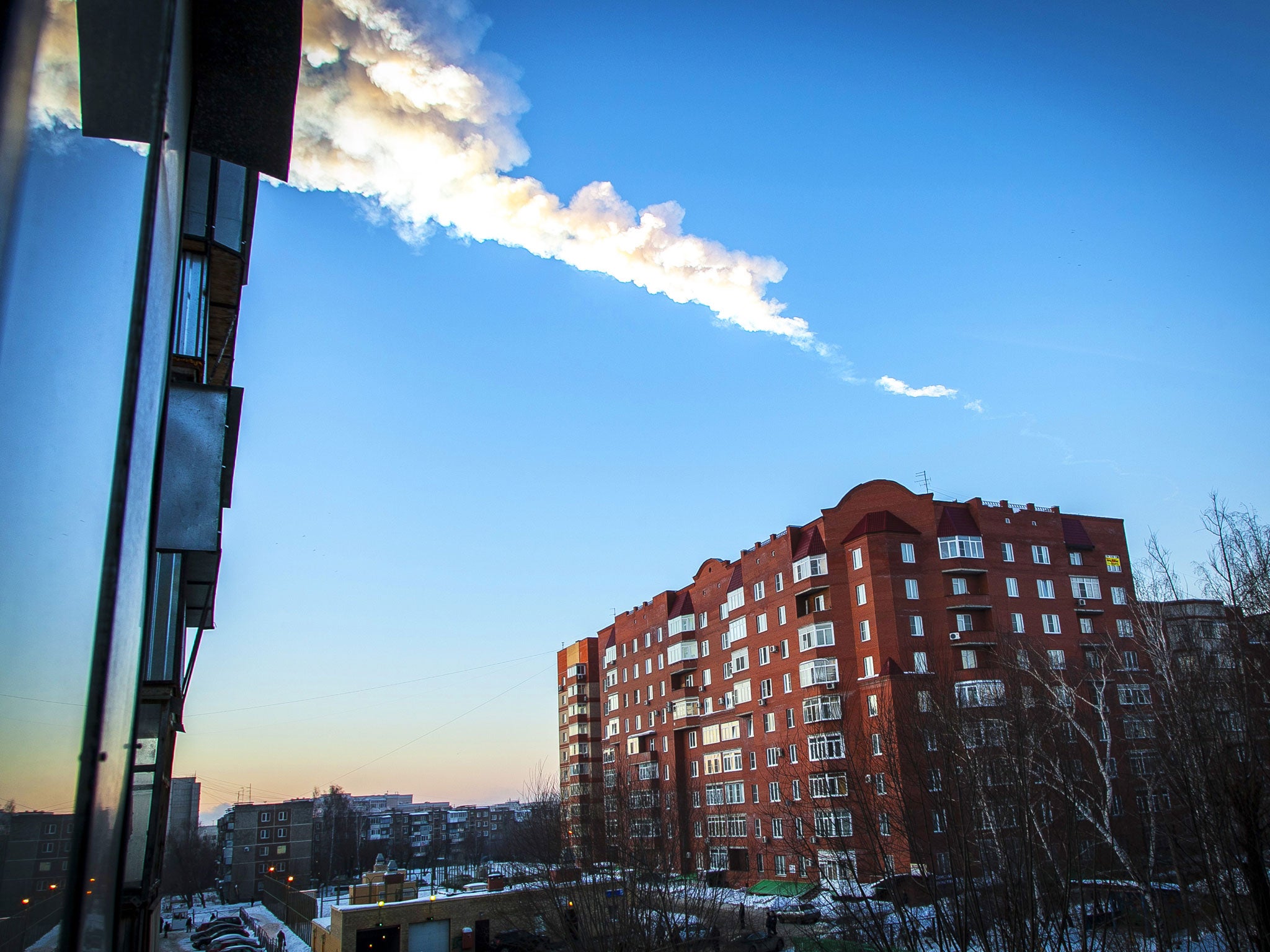Mountain-sized asteroid headed towards Earth
Huge rock could hit Earth in next 150 years, says scientist, but Nasa disagrees

Your support helps us to tell the story
From reproductive rights to climate change to Big Tech, The Independent is on the ground when the story is developing. Whether it's investigating the financials of Elon Musk's pro-Trump PAC or producing our latest documentary, 'The A Word', which shines a light on the American women fighting for reproductive rights, we know how important it is to parse out the facts from the messaging.
At such a critical moment in US history, we need reporters on the ground. Your donation allows us to keep sending journalists to speak to both sides of the story.
The Independent is trusted by Americans across the entire political spectrum. And unlike many other quality news outlets, we choose not to lock Americans out of our reporting and analysis with paywalls. We believe quality journalism should be available to everyone, paid for by those who can afford it.
Your support makes all the difference.A mountain-sized asteroid could hit Earth within the next 150 years, causing huge damage if it collides with the planet as it spins around it every three years.
The rock poses no immediate threat, but if it hit the Earth the impact would be 1000 times as large as a meteor that slipped through the atmosphere by surprise and crashed down near a Russian town in 2013. Scientists said at the time that impact should be a reminder of how dangerous smaller asteroids can be.
Because of the difficulty of tracking such rocks — whose paths are changed by the gravitational pull of the many planets that they pass by as they fly through space — it will be important to keep an eye on the asteroid in case it gets dangerously close to earth, said Vladimir Lipunov, of Moscow State University, who spotted the asteroid. The rock flies close to Earth every three years.

"We need to permanently track this asteroid, because even a small mistake in calculations could have serious consequences," said Lipunov.
The rock is about 400 meters wide and “returns to the Earth’s neighbourhood periodically”, Nasa said in a statement, while telling people not to worry.
Asteroid collisions with earth are not unheard of, and one crashed down in Russia, damaging buildings. Some scientists — including Brian Cox and Lord Martin Rees, the astronomer royal — have called for an asteroid detection programme to help spot asteroids before they arrive.
But 2014 UR116 is unlikely to hit Earth any time soon, said Nasa.
Nasa’s Near Earth Object Program said: “While this approximately 400-meter sized asteroid has a three year orbital period around the sun and returns to the Earth's neighborhood periodically, it does not represent a threat because its orbital path does not pass sufficiently close to the Earth's orbit.”
It said that one of its scientists had worked out the asteroids path again, using new information. That allowed Tim Spahr, director of the Minor Planet Center in Cambridge, Massachusetts, to work out “rule out this object as an impact threat to Earth (or any other planet) for at least the next 150 years”, Nasa said.
Join our commenting forum
Join thought-provoking conversations, follow other Independent readers and see their replies
Comments